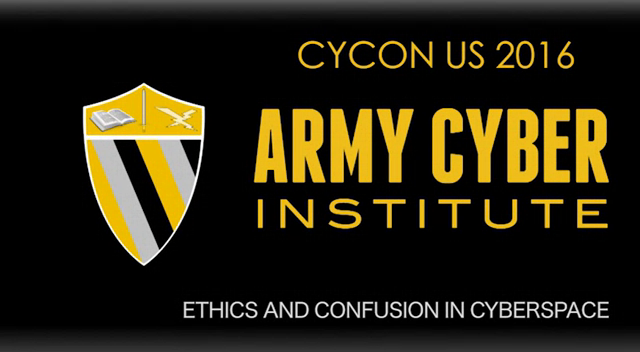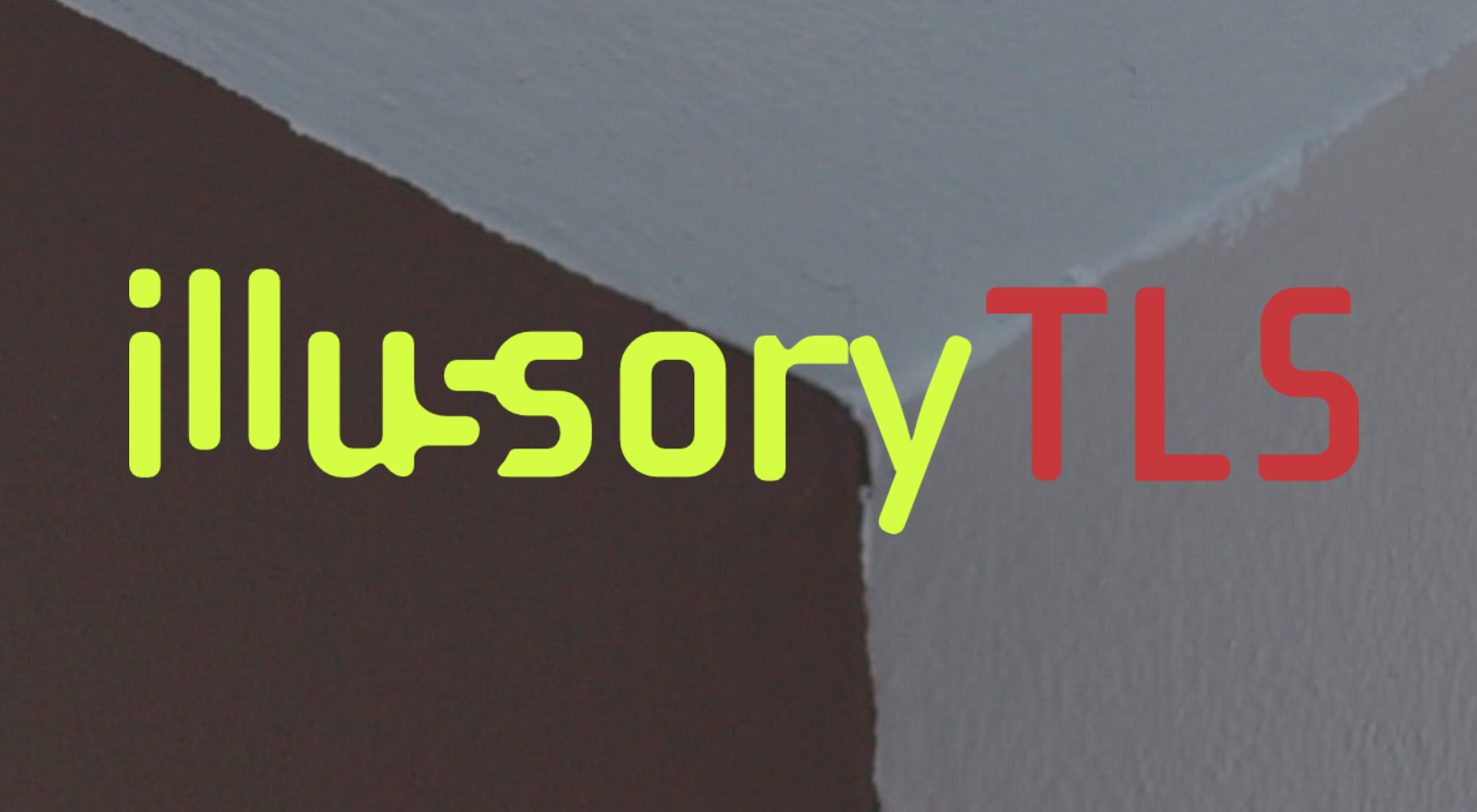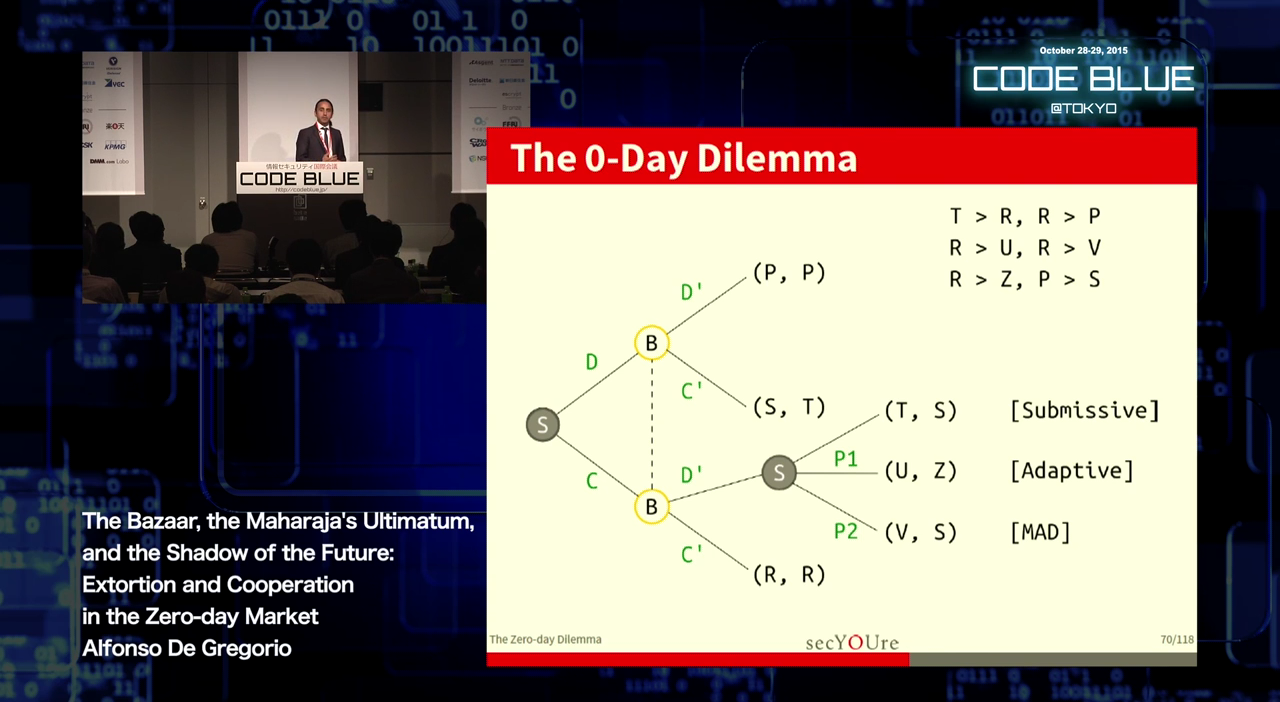Profile
Alfonso de Gregorio (b. 1978, IT) is an artist, globally recognised cybersecurity technologist, featured speaker in 25+ leading peer-reviewed international events, and hacker. His chief artistic concerns are to raise questions about the world and time we live in, and to make politics sensible. In his practice, Alfonso examines the aesthetics and politics of surveillance, traumatic memory, and sustainability. He works, above all, with the media of image-making, informatics, lecture, and engineering.
At the intersection of art and documentary, his practice is process and research based. In particular, Alfonso utilizes his cybersecurity background to conceive novel processes. Assessed their ability to add to the storytelling, he matches them to a subject-matter that he has researched, and develops the concept. The final projects are the result of the combination of the designed process and the concept, backed by his craft. Alfonso intends to rethink the documentary gesture in its concept, form, and method. In his works, knowledge meets conjecture, observation meets imagination, mimesis meets poiesis.
One of the most powerful aspects of Alfonso’s works is that they are informed by his professional career, in both their form and content. His research spans numerous subjects, including: surveillance, cryptographic engineering, security architectures, security economics, and ethics. His scientific contributions appeared in the proceedings of international security conferences, made it to the WhiteHat’s Top 10 Web Hacking Techniques of 2015, and have been profiled by leading media outlets such as ABC, The Register, and Kommersant. Having worked extensively with the industry, government, and academia in shaping the discussion and practice of cybersecurity, he has gained deep domain knowledge about our interconnected possibility space and the resulting societal risks. Now that he approached art as a way to distill his thoughts, the societal challenges related to his professional career form one of the main thematic areas for his oeuvre.
In one of his latest projects, Alfonso repurposed imaging technology for video surveillance to the space laying at the intersection of art photography, performance, and personal documentary. He turned surveillance technology towards himself, to record the resulting introspective investigations, in the attempt to make the invisible visible. In so doing, he aimed to address the epidemic level of loneliness in today’s society, and how the said condition incentives the use of social media. Mediating almost every form of social participation, those media are , in fact, perfect surveillance platforms in disguise. Appropriating the techniques of surveillance, and exploring how surveillance underpins our own way of life, the project questions the politics and aesthetics of surveillance themselves. Can there be any sublime in today’s surveillance?
More recently, Alfonso designed Sans Surveillance Sans, a typeface that utilizes ligatures to offer a political commentary about the risks of Surveillance Capitalism. Sans Surveillance Sans starts by acknowledging how political leaders, government agencies, and the industrial complex shaping toady’s surveillance apparatus, prefer to market their programmes and technologies under appealing Orwellian figures of speech – while failing to address the resulting societal risks. Exploiting ligatures in a liberal way, Sans Surveillance Sans automatically replaces oxymorons, euphemisms, and technical jargon, as they are written, with more straightforward and honest language. While traditional typeface designers utilize ligatures to improve the legibility of texts, with Sans Surveillance Sans Alfonso goes one step further and utilizes ligatures to improve our ability to make sense of the world we live in. He utilized his typeface to add the subtitles to a conference speech by Cambridge Analytica on the power of big data and psychographics in the US electoral campaign. Looked in retrospect, the resulting subtitles are revealing.
Influenced by the French philosopher Jacques Ranciére and, among others, by artists such as Claudia Andujar, Thomas Ruff, Richard Mosse, Mandy Barker, and Abdulnasser Gharem, Alfonso employs aesthetics as a discourse for political and social engagement, and joins Mark Foster Gage in saying that “aesthetics equals politics.” In a society suffering from a short attention span, his intention is to utilise aesthetics to win the attention of the viewers, and, in so doing, to invite them to reflect on the themes his oeuvre addresses.
Alfonso’s works have been exhibited around the world since he began making images in 2017, including at the National Portrait Gallery, London (2020), Voies Off – Arles (2019), Encontros da Imagem (2019), PHOTO IS:RAEL (2019), Riga Photomonth (2019), Photoville NYC (2018), Batumi Photo Days (2018), and SFMoMA (2017).
Alfonso is Finalist of the Taylor Wessing Photographic Portrait Prize, two-times winner of the Allard Prize Photography Competition, and FRESH EYES 2019 talent by GUP Magazine. He has lived in Dubai, Moscow, Milano, Brussels, and Rome – And at times he is reported to be enjoying writing about himself in the third person.
SELECTED EXHIBITIONS and Projections
- 2022, BAB 2022 – CHAOS : CALM, Bangkok Art Biennale, Bangkok, Thailand;
- 2022, Metaverse Biennale, Biennale.io, Dubai, United Arab Emirates;
- 2022, COUNTERPARTS, PORTRAITS – Hellerau Photography Award, Museum of Science and Technology, Dresden, Germany;
- 2021, NEW BORDERS, International Photography Symposium NIDA, Nida, Lithuania;
- 2021, FUTURE(S); Belfast Photo Festival 2021 Open Submission exhibition, Belfast, UK;
- 2021, Der Greif Guest Room: Curated by Mirjam Kooiman, Der Greif;
- 2021, Der Greif Guest Room: Curated by Anna-Alix Koffi, Der Greif;
- 2020, TAYLOR WESSING PHOTOGRAPHIC PORTRAIT PRIZE 2020, National Portrait Gallery, London, UK;
- 2020, Der Greif Guest-Room: Curated by Mariama Attah, Der Greif;
- 2020, We Are All Contagious, Curated by Nato Thompson, UMass Dartmouth University Art Gallery, New Bedford, MA, USA;
- 2020, Fabrica versus Corona, Fabrica Plataforma, Fabrica Research Centre, Treviso, Italy;
- 2020, LANDSKRONA FOTO & BREADFIELD DUMMY AWARD, Landskrona, Sweden;
- 2020, Der Greif Guest-Room: Curated by Holly Hay, Olivia Hazeldine, and Sophie Gladstone, Der Greif;
- 2020, Beyond Aesthetics, Artdoc Magazine, Amsterdam, The Netherlands;
- 2019, GUP :: FRESH EYES, Voies Off :: Festival, Arles, France;
- 2019, PHOTO IS:RAEL projections, PHOTO IS:RAEL, Tel Aviv, Israel;
- 2019, Discovery Awards 2019 projections, Encontros da Imagem, Braga, Portugal;
- 2019, Eating Pineapples on the Moon, Riga Photomonth, Riga, Latvia;
- 2019, Photographs in Conversation, curated by Aline Smithson, Lenscratch;
- 2018, Depth of Feel, Singapore International Photography Festival, Singapore, Singapore;
- 2018, Like a Dream, Photoville, New York City, USA;
- 2018, sea@ experience, Batumi Photo Days 2018, Batumi, Georgia;
- 2018, Guest-Room: curated by Lorenza Bravetta, Der Greif;
- 2017, Unauthorized SFMoMA, 30 June 2017, SFMOMA, San Francisco, USA ;
- 2017, Urban & Human Empathy, Trieste Photo Days, Trieste, Italy;
- 2017, The Street Experience, Millepiani Exhibition Space, Rome, Italy.
Selected Awards and Grants
- 2022, Winner, Bangkok Art Biennale 2022 – CHAOS : CALM, Bangkok Art Biennale Open Call;
- 2022, Finalist, PORTRAITS – Hellerau Photography Award;
- 2022, Winner, Metaverse Biennale 2002 Open Call;
- 2021, Winner, First Prize, The Magenta's Foundation UNSTUCK Photography Grant;
- 2021, Winner, Belfast Photo Festival 2021 Open Submission - FUTURE(S);
- 2021, Shortlisted, Spotlight Award, Belfast Photo Festival;
- 2021, Honorable Mention, International Photography Awards (IPA) 2021, Professional: Deeper Perspective;
- 2021, Winner, Nabi Online Hackathon 2021 Special Prize, "Hello World! New Playground", Art Center Nabi;
- 2021, Shortlisted, Getxophoto Festival 2021 Open Call;
- 2020, Finalist, TAYLOR WESSING PHOTOGRAPHIC PORTRAIT PRIZE 2020;
- 2020, Shortlisted, IMA Next, Future, juried by Sputniko! (スプツニ⼦子!);
- 2019, Shortlisted, IMA Next, Travel, juried by Yoshitomo Nara (奈良美智);
- 2019, Selected, Nera Prize Verzasca Foto Festival Awards;
- 2019, Emerging Talent, FRESH EYES, GUP Magazine;
- 2018, Nominee, International Photography Grant;
- 2018, Finalist, Premio Voglino 2018;
- 2018, Finalist, HIPA 2017-2018;
- 2018, Honourable Mention, International Photography Awards (IPA) – Professional Editorial, Photo Essay and Feature Story;
- 2017, Winner, Allard Prize Photography contest, Autumn Edition;
- 2017, Winner, Allard Prize Photography contest, Spring Edition.
- 2015, WhiteHat’s Top 10 Web Hacking Techniques of 2015, illusoryTLS.
Selected TaLKS
- 2021, "Surveillance State", w/ Adam Broomberg and Esther Hovers. Host: Anna Cafolla, June 25, Belfast Photo Festival, Belfast, UK.
- 2021, “Anomalous Surveillance”, Nabi Online Hackathon, Art Center Nabi, Seoul, Republic of Korea;
- 2021, "Retained Reports: One the Permanence of Our Behavioural Surplus", Open Show Pasadena/East LA 38, Pasadena Photo Arts, LA, USA;
- 2017, “Vulnerabilities and Ethics: A Code of Ethics for the Private-Sector”, March 14-16, Australian Cyber Security Centre Conference (ACSC) 2017, Canberra, Australia.
- 2017, “Vulnerabilities and their Surrounding Ethical Questions: A Code of Ethics for the Private Sector”, Invited Talk, Jan 27th, EU Zero-day vulnerability management: from research to production, European Commission DG JRC workshop, Brussels, Belgium.
- 2016, “Vulnerabilities and their Surrounding Ethical Questions: A Code of Ethics for the Private Sector“, 2016 NATO’s International Conference on Cyber Conflict (CyCon U.S.), Washington D.C., U.S.A.
- 2016, Opening Panel, Ekoparty, Buenos Aires, Argentina.
- 2016, “The Vulnerabilities Supply Chain”, HACK IT Ukraine, Kharkiv, Ukraine.
- 2016, “Vulnerabilities and Ethics: A Code of Ethics for the Private Sector”, HITB GSEC, Singapore, Singapore.
- 2016, Invited Keynote, CyberCamp, Leon, Spain.
- 2016, “Andy, the Polluters, Rick Deckard, and Other Bounty Hunters“, PHDays 2016, Moscow, Russian Federation.
- 2015, “illusoryTLS: Nobody But Us, Impersonate, Tamper, and Exploit”, ZeroNights 2015, Moscow, Russian Federation.
- 2015, “illusoryTLS: Nobody But Us, Impersonate, Tamper, and Exploit”, DeepSEC, 2015, Wien, Austria.
- 2015, “The Bazaar, the Maharajah’s Ultimatum, and the Shadow of the Future: Extortion and Cooperation in the Zero-day Market”, CODE BLUE, 2015, Tokyo, Japan.
- 2015, “illusoryTLS: Nobody But Us, Impersonate, Tamper, and Exploit”, ZeroNights, 2015, Moscow, Russian Federation.
- 2015, “The Bazaar, the Maharajah’s Ultimatum, and the Shadow of the Future: Extortion and Cooperation in the Zero-day Market”, HITB GSEC, 2015, Singapore, Singapore.
- 2015, “illusoryTLS: Nobody But Us, Impersonate, Tamper, and Exploit”, HITBSecConf, 2015, Amsterdam, The Netherlands.
- 2015, “The Bazaar, the Maharajah’s Ultimatum, and the Shadow of the Future: Extortion and Cooperation in the Zero-day Market”, PHDays V, 2015, Moscow, Russian Federation.
- 2015, “The Bazaar, the Maharajah’s Ultimatum, and the Shadow of the Future: Extortion and Cooperation in the Zero-day Market”, AusCERT, 2015, Gold Coast, Queensland, Australia.
- 2013, “BeeWise: A Futures Market for Fostering Security by Design”, Keynote, June 4th, IFIP TM, Security by Design: From Theory to Practice, 2013, Malaga, Spain.
- 2011, ”Software Security’s Futures Plural”, October 11th-13th, 2011, RSA Conference Europe, London, UK.
- 2011, ”Software Security’s Futures Plural”, February 14th, 2011, Metricon 5.5, San Francisco, USA.
- 2009, ”How to Identify and Follow Your Targets, No Matter Where They Hide”, January 2009, ISS World Europe, Prague, Czech Republic.
- 2006, ”The World Wide Weil and Tate Pairings: Applications of Pairing-Based Cryptography in the Semantic Web”, May 25th, 2006, 8th Congress of the Italian Society for Industrial and Applied Mathematics, Italy.
- 2005, ”Cryptographic Key Reliable Lifetimes: Bounding the Risk of Key Exposure in the Presence of Faults”, Sep 2nd, 2005, Fault Diagnosis and Cryptography (FDTC 2005), Edinburgh, Scotland, UK.
- 2003, ”Deliberately Un-Dependable Applications: the Role of Dependability Metrics in Fault Attacks”, Invited Talk, COSIC Seminar, August 8th, 2003, Katholieke Universiteit Leuven, Leuven, Belgium.
- 2003, ”Virtualizing Smart-Cards: a Step Toward Ubiquitous Cryptography”, SSGRR, January 11th, 2003, Coppito, Italy.
ARTICLES, FEATURES, and CATALOGUES
- 2022, Katalog 2022, PORTRAITS – Hellerau Photogra phy Award, Verlag der Kunstagentur Dresden, Dresden, Germany;
- 2021, Jon Uriarte, et al.; “Elkarbanatu Compartir To Share”, Getxophoto 2021, September 2021, Getxo, Spain;
- 2021, Sylvie Fleury, ed.; “ YES TO ALL” – Der Greif 14, September 2021, Munich, Germany;
- 2020, Penelope Umbrico, ed.; “Surplus Management” – Der Greif 13, September 2020, Munich, Germany;
- 2020, Alfonso De Gregorio, Selenite — The Stone of the Moon, PHMuseum Featured Story, PHMuseum;
- 2020, Alfonso de Gregorio, The Mallards’ Call, Artdoc Magazine, May 2020, Amsterdam, The Netherlands;
- 2019, Roy Kahmann, ed.; FRESH EYES, New European Photography, GUP, XPublishers, Amsterdam, The Netherlands;
- 2019, What Now?, Encontros da Imagem, Catalogue, October 2019, Braga, Portugal;
- 2019, PHOTO IS:RAEL 2019, PHOTO IS:RAEL, Catalogue, December 2019, Tel Aviv, Israel;
- 2019, Alfonso de Gregorio, Selenite, International Photography Magazine, March 2019, Krakow, Poland;
- 2017, Unauthorized SFMOMA, Unauthorized SFMOMA Catalogue, SFMOMA, San Francisco, USA;
- 2017, Alfonso de Gregorio, Impeached: At the intersection of indignation and hope, POSI+TIVE Magazine, January 2017, Venice, Italy.
Selected Academic Papers
- 2016, De Gregorio, A. “Vulnerabilities and their surrounding ethical questions: a code of ethics for the private sector,” 2016 International Conference on Cyber Conflict (CyCon U.S.), Washington, DC, 2016, pp. 1-4. doi: 10.1109/CYCONUS.2016.7836615
- 2006, De Gregorio, A., ”Cryptographic Key Reliable Lifetimes: Bounding the Risk of Key Exposure in the Presence of Faults”, Lecture Notes in Computer Science, vol 4236: 144-158, Springer-Verlag.
- 2005 De Gregorio, A., ”Cryptographic Key Reliable Lifetimes: Bounding the Risk of Key Exposure in the Presence of Faults”, 2nd Workshop on Fault Diagnosis and Tolerance in Cryptography (FDTC 2005), Edinburgh, Sctoland.
- 2003, De Gregorio, A., Fossati, T., Frustaci, G., ”Virtualizing Smart-Cards: a Step Towards Ubiquitous Cryptography”, SSGRR, L’Aquila, Italy.
Who holds the moral low ground?
Alfonso spoke at the NATO’s International Conference on Cyber Conflict (CyCon U.S.). Watch the talk here “Vulnerabilities and their Surrounding Ethical Questions: A Code of Ethics for the Private Sector“
illusoryTLS: Nobody But Us Impersonate, Tamper, and Exploit
Cryptographic backdoors are a timely topic often debated as a government matter to legislate on. At the same time, they define a space that some entities might have practically explored for intelligence purposes, regardless of the policy framework. Watch here a series of talk – And get the running code.
The Bazaar, the Maharaja's Ultimatum, and the Shadow of the Future
Watch a series of conferences where Alfonso offers a game-theoretic analysis of the cut-throat exploit marketplace. "The Bazaar, the Maharaja's Ultimatum, and the Shadow of the Future: Extortion and Cooperation in the Zero-day Market"



